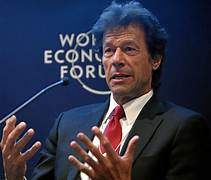
Introduction:
In the realm of Pakistani politics, few figures have commanded as much attention and controversy. As Imran Khan, the former Prime Minister of Pakistan. Over the years, Khan has faced numerous challenges and issues while dealing with the country’s current politicians. In this blog post, we will explore some of the key problems that Imran Khan has encountered in his political journey. Ahedding light on the complexities of Pakistan’s political landscape.
1. Lack of Unity:
One of the major issues that Imran Khan has faced with Pakistan’s current politicians is the lack of unity among them. The country’s political landscape is fragmented, with various parties vying for power and influence. This lack of cohesion has made it difficult for Khan to implement his vision for a stronger and more prosperous Pakistan. Despite his efforts to bridge the gaps and foster cooperation. The inherent divisions within the political framework have hindered his progress.
2. Opposition’s Resistance:
Imran Khan’s tenure as Prime Minister has been marked by strong opposition from rival political parties. These parties have not only criticized Khan’s policies but have also launched relentless attacks on his personal character and leadership. This resistance has made it challenging for Khan to implement his agenda and bring about the desired changes in the country. The constant pushback from the opposition has often resulted in political deadlock and hindered the progress of key initiatives.
3. Corruption and Dynastic Politics:
Corruption and dynastic politics have been deeply ingrained in Pakistan’s political system for decades. Imran Khan’s promise to eradicate corruption and promote meritocracy has faced. Significant resistance from politicians who have thrived under the patronage-based system. Khan’s efforts to hold corrupt politicians accountable have been met with fierce opposition. As they perceive his anti-corruption drive as a threat to their vested interests. This clash has further exacerbated the challenges faced by Imran Khan in dealing with Pakistan’s current politicians.
4. Lack of Institutional Support:
In order to effectively govern a country, a leader relies on the support of various institutions. Unfortunately, Imran Khan has struggled to garner adequate institutional support during his tenure. Bureaucratic hurdles and resistance from entrenched interests have often undermined his efforts to implement reforms and streamline governance. This lack of institutional support has further complicated the already challenging task of working with Pakistan’s current politicians.
Conclusion:
Imran Khan’s journey as Prime Minister of Pakistan has been marked by numerous. Challenges and issues when dealing with the country’s current politicians. The lack of unity, strong opposition, corruption, and dynastic politics, as well as the lack of institutional support. Have posed significant obstacles in implementing his vision for a better Pakistan. However, despite these challenges, Khan remains committed to his goals and continues. To strive for a more prosperous and inclusive Pakistan. As the country’s political landscape evolves. It remains to be seen how these issues will be addressed and whether lasting change can be achieved.






